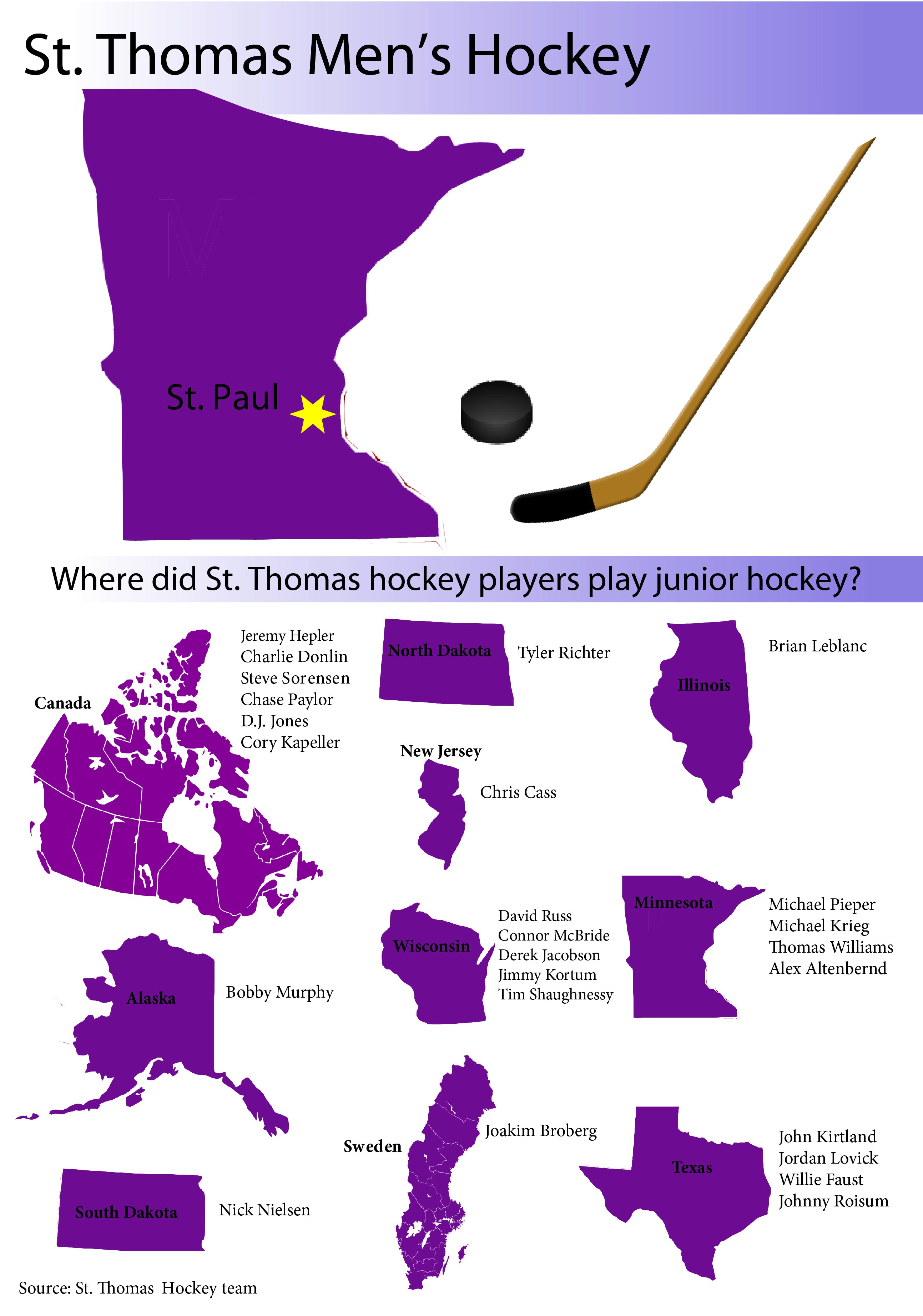
In many cases, if someone played a sport in high school at a high level, he or she goes straight to a college career. But hockey has long been a sport that does things differently. It strayed from that tradition and introduced junior hockey.
Although more prevalent in Division-I, a stop before college is becoming more common in D-III, and the St. Thomas men’s hockey team is no different. While a majority of players played juniors, goaltender Joe Morris and forward Chris Benson are two who chose not to before suiting up for the Tommies.
For Benson, the decision to forgo junior hockey was as much about academics as it was about athletics.
“I was getting the opportunity to come here, and I liked the school a lot,” Benson said. “I didn’t want to pass it by – to come to a good school with such good academics and get to play hockey and not have to take a couple years off.”
Forward Jordan Lovick played two years of juniors in the North American Hockey League before coming to St. Thomas. He played one year for the Fresno Monsters in California and one year for the Texas Tornados based in Frisco, Texas. He said there are advantages to playing junior hockey.
“You’re definitely more mature coming into college,” Lovick said. “Not only as a hockey player but as a person. I feel like it helped me as a student too.”
Despite choosing not to play juniors, Benson agreed and said there are no disadvantages from a hockey standpoint.
“The two to three years of playing juniors while getting older, getting stronger and just the hockey aspect of becoming more skilled,” Benson said. “You can gain a lot more skills and abilities that you missed out on by not playing juniors.”
Coach Jeff Boeser said heavily recruiting players from junior leagues is extremely important.
“If we’re going to compete at a high level and try to get to the NCAAs every year, it’s not going to work if we just take high school kids because they’re just behind physically, mentally and emotionally,” Boeser said.
Tommie players come from leagues like the British Columbia Hockey League, Alberta Junior Hockey League, United States Hockey League, Eastern Junior Hockey League, Ontario Junior Hockey League and Manitoba Junior Hockey League. Boeser said although players come from a range of junior leagues, it doesn’t matter because they all have the same tenacity.
“They have to play 60-70 games a year,” Boeser said. “They have to travel long distances and play games. They’re just more prepared for our level at (age) 20.”
Benson said although he does not regret his decision to come straight to St. Thomas without playing junior hockey, he still suggests that others do it.
“I think now it’s almost a given to do it,” Benson said. “I would say if they want to do it, then go for it. But if they don’t want to, it’s not the end of the world.”
Boeser said one of the main disadvantages of playing junior hockey is that one might not be able to continue school, but that problem can be remedied.
“In this day and age, you can take online classes. We’ve had kids that have gone to school because the town had a school. There’s ways you can stay fresh in that,” Boeser said.
Lovick said playing juniors was the right decision for him, and it ended up being about more than just hockey.
“I think the experience was definitely worth it, to be honest,” Lovick said. “Just the experience you gain, both in life and in hockey, is almost irreplaceable.”
Andrew Frentz can be reached at fren2218@stthomas.edu.

